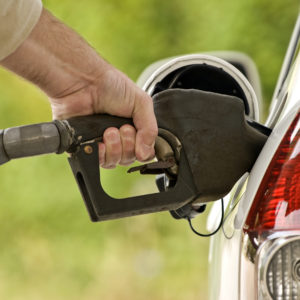President Trump did something very clever recently. Also something inconceivable had someone else been elected president in 2016.
He rescinded a federal regulatory decree that was about to go into effect that would have almost tripled federal “gas guzzler” fines.
By doing this, he effectively pulled the teeth out of the jaws of another federal regulatory decree — one that may still go into effect — that will require that all new cars average nearly double the gas mileage they are currently required to average.
This latter is the subject of a continuing and extremely acrimonious tug of war between Trump and states like California that have amen’d the doubling and are fighting Trump to keep the doubling.
But without the tripled fines, the doubled miles-per-gallon mandate becomes a toothless mandate. Or at least, a less toothsome one.
It is remarkable — and telling — that there has been relatively little coverage of this. Probably because Trump’s decision to take the bite out of federal fuel economy regs can be seen as questioning the basic idea of federal fuel economy regs.
Corporate Average Fuel Economy standards have been around — and in force — since the ’70s, when the government first got into the fuel-efficiency business. It was argued at the time that it was necessary for the government to get into the fuel-efficiency business because of gas lines, oil embargoes and a general belief that we were soon going to run out of gas.
The initial CAFE mandatory minimum — the so-called “fleet average” miles per gallon all car companies had to meet in order to avoid fines — was around 22 mpg.
It is currently about 35 mpg.
President Obama’s Environmental Protection Agency — in a “Midnight Judges” moment just before Trump’s inauguration — decreed the near-doubling of the mandatory to minimum to more than 50 mpg, effective by the 2026 model year.
Cars that didn’t make the CAFE cut would have been the object of punishing fines for every mpg below the new standard: $14 for every 0.01 mpg not in “compliance” rather than the current $5.50.
This would have been applied to virtually every car — and all trucks and SUVs — currently on the market.
Because almost no cars currently on the market are capable of averaging 50 mpg — or even 40 mpg. Among the handful that can make the CAFE cut are hybrids like the Toyota Prius.
Everything else would have become a lot more expensive — and a lot more scarce.
Because the tripled-down fines would have made them significantly more expensive to build — and increasingly unaffordable for most people to buy.
But this begs the question Trump’s recent decision almost asked: Why is the government using fines to punish people for buying the cars they prefer?
All of the reasons promulgated back in the ’70s justifying CAFE — and energy austerity — no longer apply. Gas (not counting the taxes added) is cheaper in real terms today than it was in 1975 — because the supply has proved to be far greater than thought back in 1975. And America is no longer beholden to OPEC, the foreign oil cartel that used to control most of the world’s oil supply.
America is now the world’s biggest producer of oil — and on the cusp of being a net exporter of oil. The “energy crisis” is fading fast in the rearview mirror.
Unsurprisingly, most people prefer to buy cars — and trucks and SUVs — that don’t get the mileage the government thinks they ought to. It’s not because high-mileage vehicles aren’t available. There’s the Prius, for instance.
The “problem” — from the regulatory apparat’s point of view — is that the best-selling cars (and trucks and SUVs) are not cars like the Prius. The fines are the regulatory apparat’s attempt to get people to change their buying decisions; in plainer language — to countermand their buying decisions.
Trump may not have explicitly called the propriety of this into question — but his rescinding of the fines amounts to exactly that. And it’s high time.
Fuel efficiency is one of many attributes a vehicle can tout to prospective buyers. But it isn’t the only attribute of importance to many buyers — or even a primary one. People who buy larger or more powerful or capable vehicles value those attributes more — and are willing to pay for them. And for the fuel.
How is it the legitimate business of the government — in a free country — to punish people for making free choices?
If the market valued fuel-efficiency uber alles, then the car industry would cater to that market without being fined. Because that’s where the money would be.
Trump’s decision doesn’t say all of this openly. But it speaks it loudly.

